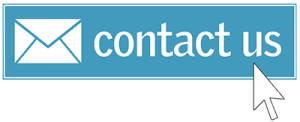Embarking on the URAC accreditation journey demands meticulous planning and understanding. Here’s a concise guide covering the first 7 crucial questions, along with insights on how BHM Healthcare Solutions can support your organization through the accreditation process.
Before you begin your URAC accreditation journey, it’s important to ask yourself these 7 important questions to ensure your team is prepared and primed for success:
1. What Type of URAC Accreditation Is Appropriate for My Organization?
Identify the URAC accreditation that aligns with your organization’s services and goals, ensuring a targeted and effective approach.
Best Practices:
- Align with Organizational Goals: Choose an accreditation type that closely aligns with your organization’s services and overarching objectives.
- Engage Stakeholders: Involve key stakeholders to ensure diverse perspectives are considered when selecting the most appropriate accreditation.
- Long-Term Vision: Opt for an accreditation that supports your organization’s long-term vision and growth strategy.
2. Are We Familiar with URAC’s Standards and Requirements?
Thoroughly understand URAC’s standards and requirements relevant to your organization, establishing a solid foundation for the accreditation process.
Best Practices:
- Comprehensive Review: Thoroughly review URAC’s standards and requirements relevant to your organization’s type, leaving no room for oversight.
- Ongoing Training: Implement ongoing training programs to keep staff updated on evolving standards and compliance requirements.
- Documentation Practices: Establish robust documentation practices to record adherence to each specific criterion.
3. Do We Have the Necessary Resources?
Ensure allocation of required financial, human, and technological resources to support a smooth and effective accreditation process.
Best Practices:
- Resource Assessment: Conduct a thorough assessment to ensure the allocation of adequate financial, human, and technological resources.

Contact BHM by clicking image and schedule a brief Accreditation review. - Contingency Planning: Develop contingency plans for unexpected resource challenges, ensuring adaptability throughout the accreditation process.
- Cross-functional Collaboration: Foster collaboration between finance, HR, and IT departments to ensure a holistic approach to resource allocation.
4. Have We Conducted a Readiness Assessment?
Evaluate your organization’s current state regarding URAC standards, gaining insights into strengths and weaknesses to guide targeted improvements.
Best Practices:
- Holistic Evaluation: Conduct a comprehensive readiness assessment to evaluate your organization’s current state regarding URAC standards.
- SWOT Analysis: Perform a SWOT analysis to identify internal strengths, weaknesses, external opportunities, and potential threats.
- Benchmarking: Use industry benchmarks to gauge readiness and set realistic goals for improvement.
5. Have We Developed an Accreditation Team?
Assemble a dedicated team with the necessary expertise to coordinate and manage the accreditation process collaboratively.
Best Practices:
- Cross-Functional Expertise: Assemble a team with cross-functional expertise covering various aspects of your organization.
- Leadership Commitment: Ensure commitment and support from leadership to empower the accreditation team.
- Clear Roles and Responsibilities: Define clear roles and responsibilities within the team, fostering accountability and efficient collaboration
6. Are Our Policies and Procedures Aligned with URAC Standards?
Regularly review and update organizational policies and procedures to align with URAC standards, addressing any gaps for seamless integration.
Best Practices:
- Regular Review Cycles: Establish regular review cycles for policies and procedures to ensure ongoing alignment with URAC standards.
- Continuous Improvement: Foster a culture of continuous improvement, encouraging staff to suggest enhancements to existing policies and procedures.
- Training and Awareness: Provide regular training sessions to ensure staff awareness of any policy or procedure updates.
7. Have We Conducted a Gap Analysis?
Perform a comprehensive gap analysis to identify areas where your organization may fall short of URAC standards, prioritizing improvements.
Best Practices:
- Thorough Examination: Conduct a thorough gap analysis to identify areas where your organization may fall short of URAC standards.
- Prioritization: Prioritize identified gaps based on severity and potential impact, focusing on areas that require immediate attention.
- Continuous Monitoring: Implement mechanisms for continuous monitoring to track progress in addressing and closing identified gaps.
How BHM Healthcare Solutions Can Help
Navigating the URAC accreditation process can be complex, and BHM Healthcare Solutions stands ready to provide expert guidance and support. Our experienced consultants specialize in URAC accreditation, offering insights, streamlining processes, and ensuring a higher likelihood of successful accreditation. With a commitment to excellence in healthcare, BHM Healthcare Solutions is your partner for a seamless accreditation journey.
Partner With BHM Healthcare Solutions Today
| Editor’s Note: BHM Healthcare Solutions offers case review and medical director expertise, business intelligence, software, CIA consulting services and accreditation support focused on improving patient care. Contact BHM for a brief discussion on how BHM achieves success. CLICK HERE |





